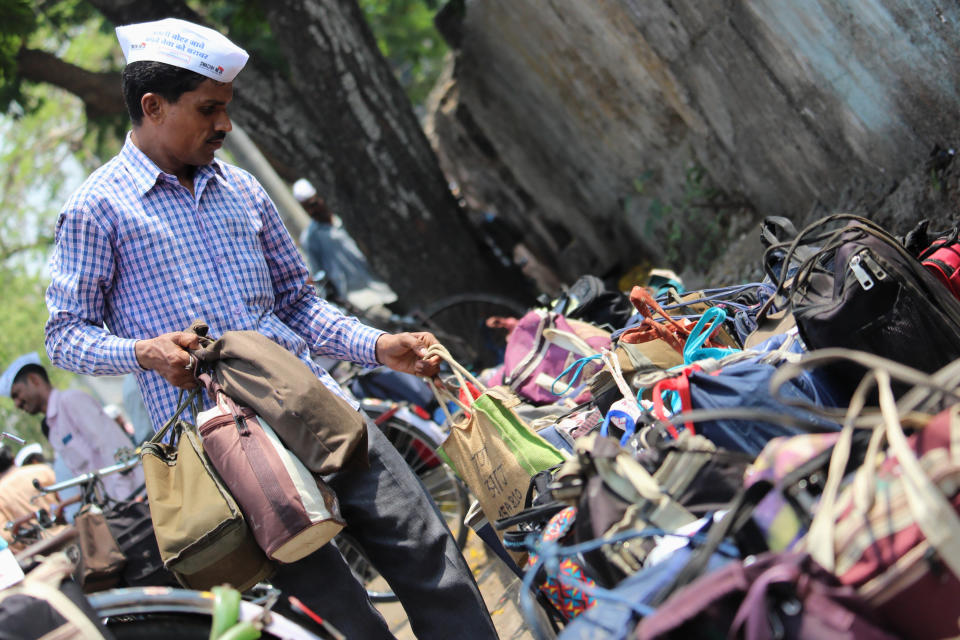Mumbai's struggling dabbawalas now allowed on local trains; they express relief and joy

Mumbai's dabbawalas have been allowed to travel in local trains which are currently being run only for essential services staff, officials said on Wednesday.
Dabbawalas, the famous lunch-box carriers in Mumbai, last month said there was never a 6-month break in the '130 -year-old history of the tiffin services', and demanded access to local trains to resume their services in full capacity.
Currently, in view of the COVID-19 restrictions, only the dabbawalas who could reach the south Mumbai area on their cycles were able to deliver food to office-goers.
They have now expressed happiness on being allowed to board local trains with effect from Tuesday.
Watch here: Mumbai’s struggling dabbawalas struggling to make ends meet during COVID-19
Sumit Thakur, chief public relations officer, Western Railway, said based on the unlock guidelines issued by the Maharashtra government on September 30, they have allowed the dabbawalas to travel in local trains.
Over 5,000 dabbawalas run the tiffin delivery business in the metropolis.
Before the outbreak of COVID-19, they used to deliver over two lakh tiffins to office-goers on normal working days.
They use suburban trains to ensure lunch boxes are delivered at the destination on time.
Shivaji Sutar, chief public relations officer of the Central Railway, said QR-coded ID cards issued by the state government will be mandatory for them to travel in local trains, but dabbawalas have requested that they be allowed to travel on their identity cards.
'If the Maharashtra government agrees to their demand, we will permit them to travel on their ID cards,' he said.

Subhash Talekar, spokesperson of the Mumbai Dabbawala Association, expressed happiness on being allowed to travel in local trains.
'Finally, after more than six months, we can resume our service,' Talekar said, adding dabbawalas will now contact their customers and request them to resume the tiffin service.
He was, however, skeptic about resumption of services in full capacity amid the COVID-19 pandemic.
'Before the pandemic, every dabbawala had on an average 20 to 22 customers, but I doubt all customers will resume the service immediately as many people are still working from home,' he said.
Another issue is that many housing societies are still not allowing outsiders into the premises, he said.
Talekar said the dabbawalas will start tiffin delivery even with four to five customers initially as they know it will take some time for things to normalise.
'We are going to follow the COVID-19 safety protocols like wearing masks and gloves, using sanitisers and maintaining social distance and will also ensure our customers about it,' he said.
Most dabbawalas hail from Maval area in Pune in western Maharashtra.
Following the enforcement of lockdown in March this year, many of them returned to their native places in Junnar, Ambegaon, Rajgurunagar, Maval, Haveli, Mulashi and other talukas in Pune district.
(With inputs from PTI and ANI)

 Yahoo Sports
Yahoo Sports 